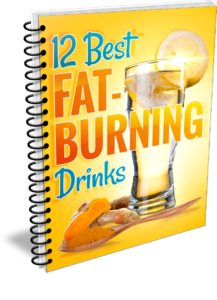Overwhelming research suggests that there is a multitude of health benefits with regular coffee consumption, one of them being an increase in metabolic rate.
by: Joel Marion and Tim Skwiat (Founder of Biotrust)
Coffee is one of the world’s most consumed drinks, trailing only water and tea, although the latter is often debated.
Despite its popularity, coffee seems to be a somewhat contentious beverage, as it is frequently considered “unhealthy.”
However, there’s seemingly more research to suggest the opposite, as there are a multitude of health benefits associated with regular coffee consumption, and among them is an increase in metabolic rate.
Research over the past several years suggests that coffee consumption may protect against type 2 diabetes, Parkinson’s disease, liver cancer, and liver cirrhosis.
It’s important to point out that studies suggesting these benefits are observational in nature, which means that they don’t necessarily prove that coffee caused the effects.
Here’s a sampling of some of the health benefits associated with regular coffee consumption:
- Research suggests that regular coffee consumption is associated with a substantially lower risk of type 2 diabetes. [1]
- Some studies have shown an inverse relationship between coffee consumption and Alzheimer’s disease, suggesting that coffee may have protective benefits against dementia. [2] Recent reports estimate that moderate coffee consumption may lower the risk of Alzheimer’s by as much as 20%. [3]
- Studies have shown that coffee drinkers have a significantly lower risk of developing Parkinson’s disease. [4]
- Recent research on coffee and mortality performed by scientists from the Harvard School of Public Health found that people who regularly drank coffee had a lower risk of death from cardiovascular disease than those who rarely drank coffee. [5]

Often, people think of coffee just as a vehicle for caffeine, which we’ll discuss more in just a moment.
But it’s actually a very complex beverage with hundreds and hundreds of different compounds in it.
In fact, a cup of coffee contains all of the following essential nutrients:
- Pantothenic Acid (Vitamin B5)
- Ribo avin (Vitamin B2)
- Niacin (Vitamin B3)
- Thiamine (Vitamin B1)
- Potassium
- Manganese
Even more, coffee is loaded with antioxidants.
In fact, studies show that coffee is the single greatest dietary source of antioxidants—outweighing even fruits and vegetables—among many cultures. [6]
Of course, coffee is synonymous with caffeine, and there may be a host of benefits— including metabolism-boosting advantages—associated with caffeine consumption.
For instance, coffee consumption increases alertness and energy levels, and studies have shown that coffee consumption can improve performance on mental tasks.[7] , [8].
In addition, studies have found that coffee can improve mood, feelings of well being, reaction times, vigilance, and cognitive function. [9]
Learn which common drinks actually accelerate fat loss and flatten your belly in this 28 Page FREE Report… Today we’re GIVING it away 100% FREE!

Caffeine is also widely studied from a sports performance standpoint, and it has been shown to significantly improve physical performance and reduce perceived levels of exertion (i.e., makes tasks feel easier) when taken before exercise. [10]
From a metabolism standpoint, studies show that coffee consumption significantly increases metabolic rate. [11]
In fact, consuming as little as 100mg of caffeine, which you can get from a single cup of coffee, is enough to boost metabolic rate, and it appears that repeated/greater doses lead to an even more pronounced effect. [12]
What’s particularly interesting is that this increase in resting metabolic rate is accompanied by greater oxidation of fat. Simply put, coffee and caffeine appear to boost metabolic rate and increase fat burning.
While there are many health and metabolism benefits associated with regular, moderate coffee consumption, it’s important to assess and consider your tolerance to caffeine.
Individual differences in caffeine metabolism apply, and genetically, some folks are “slow” caffeine metabolizers, which makes them more sensitive to the stimulatory effects (e.g., jitters, feeling wired) of the compound.
Lastly, it goes without saying that caffeine is not a sleep aid, and it is generally recommended to avoid caffeine consumption after 2pm, or at the latest, within 6 hours of bedtime.
What’s Next?
While coffee is just one weapon in your arsenal for fat loss, how would you like to lose fat in 14 days be eating your favorite foods?
If so, we’ve put together a short presentation for you as friends of Tim Ernst. It’s one of the healthiest ways to achieve 14 days of your FASTEST fat loss ever, without worrying about rebound weight gain.
==> 3 Tricks to eat LOTS of carbs and NEVER store them as fat

References:
[1] van Dam RM, Hu FB. Coffee consumption and risk of type 2 diabetes: a systematic review. JAMA. 2005;294(1):97-104. doi:10.1001/jama.294.1.97.
[2] Barranco Quintana JL, Allam MF, Serrano Del Castillo A, Fernández-Crehuet Navajas R. Alzheimer’s disease and coffee: a quantitative review. Neurol Res. 2007;29(1):91-95. doi:10.1179/174313206X152546.
[3] Coffee & Health. Good Things in Life: Can Coffee Consumption Reduce the Risk of Developing Alzheimer’s Disease?; 2014. http://coffeeandhealth.org/wp-content/ uploads/2014/11/ISIC-Alzheimers-Report-2014.pdf.
[4] Ross GW, Abbott RD, Petrovitch H, et al. Association of coffee and caffeine intake with the risk of Parkinson disease. JAMA. 2000;283(20):2674-2679.
[5] Lopez-Garcia E, van Dam RM, Li TY, Rodriguez-Artalejo F, Hu FB. The relationship of coffee consumption with mortality. Ann Intern Med. 2008;148(12):904-914.
[6] Svilaas A, Sakhi AK, Andersen LF, et al. Intakes of antioxidants in coffee, wine, and vegetables are correlated with plasma carotenoids in humans. J Nutr. 2004;134(3):562-567.
[7] Smith AP, Brockman P, Flynn R, Maben A, Thomas M. Investigation of the effects of coffee on alertness and performance during the day and night. Neuropsychobiology. 1993;27(4):217-223. doi:118984.
[8] Hindmarch I, Rigney U, Stanley N, Quinlan P, Rycroft J, Lane J. A naturalistic investigation of the effects of day-long consumption of tea, coffee and water on alertness, sleep onset and sleep quality. Psychopharmacology (Berl). 2000;149(3):203-216.
[9] Ruxton CHS. The impact of caffeine on mood, cognitive function, performance and hydration: a review of bene ts and risks. Nutr Bull. 2008;33(1):15-25. doi:10.1111/ j.1467-3010.2007.00665.x.
[10] Doherty M, Smith PM. Effects of caffeine ingestion on rating of perceived exertion during and after exercise: a meta-analysis. Scand J Med Sci Sports. 2005;15(2):69-78. doi:10.1111/j.1600-0838.2005.00445.x.
[11] Acheson KJ, Zahorska-Markiewicz B, Pittet P, Anantharaman K, Jéquier E. Caffeine and coffee: their in uence on metabolic rate and substrate utilization in normal weight and obese individuals. Am J Clin Nutr. 1980;33(5):989-997.
[12] Dulloo AG, Geissler CA, Horton T, Collins A, Miller DS. Normal caffeine consumption: in uence on thermogenesis and daily energy expenditure in lean and postobese human volunteers. Am J Clin Nutr. 1989;49(1):44-50.
